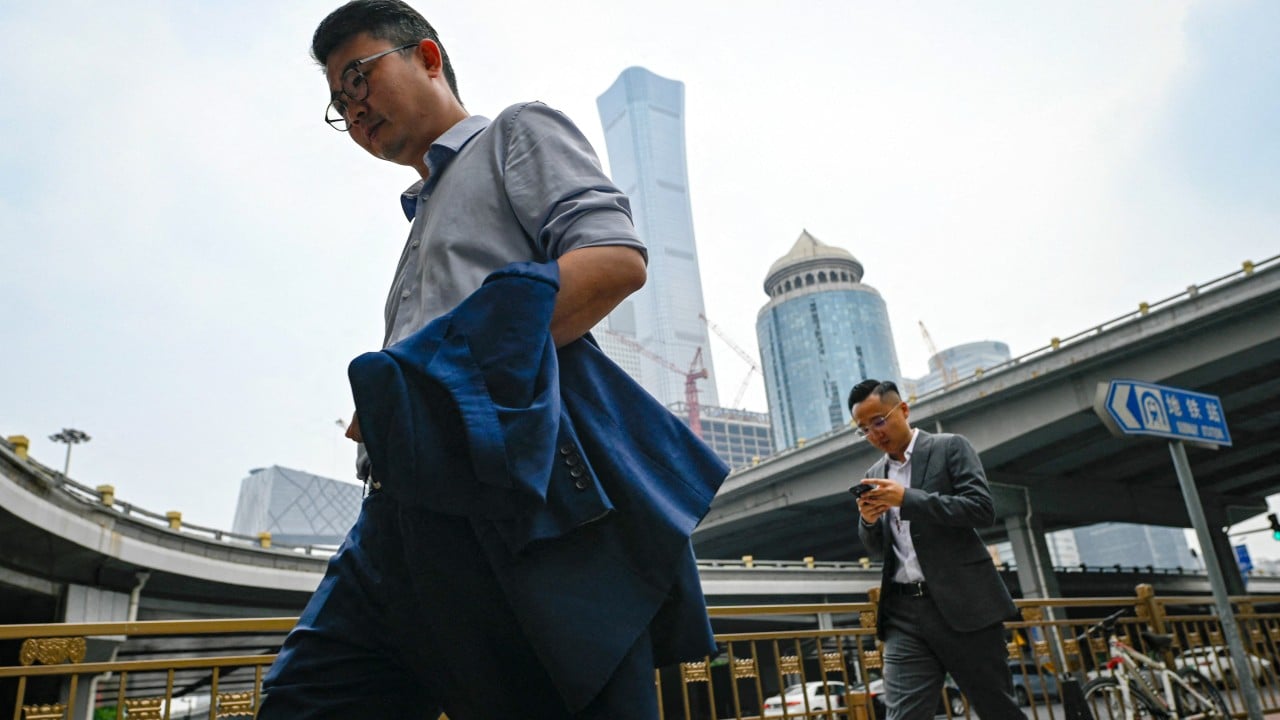Beijing’s chief theoretician has called for a consolidation of leadership’s dual-circulation economic strategy that prioritises domestic demand, ahead of the Communist Party’s tone-setting third plenum, according to official media.
The domestic market, or the internal leg of that approach, would be of central importance to China’s new growth structure and needs to function more smoothly to shield the economy against global uncertainties, said Wang Huning, head of the Chinese People’s Political Consultative Conference (CPPCC), at a meeting of the political advisory body on Monday.
A strategy that kicked off four years ago amid rising geological rivalries, with an eye on seeking greater self-reliance while remaining open to the outside world, it was China’s “strategic deployment to seize the initiative in development”, the party’s No 4 official was quoted as saying by the official Xinhua news agency.
The policy was reiterated as economic activity remains weak and low revenue and profits continue to trouble the private sector, adding pressure on leadership’s economic growth goal of 5 per cent growth for all of China this year.
“Smoothing out domestic circulation is a strategic choice to boost economic growth and create new advantages for our international economic cooperation and competition,” Wang said at Monday’s meeting.
Presenting their research findings at the meeting, themed “unblocking internal circulation”, leaders of minor political parties pointed to a series of issues, including a more efficient logistics system, a unified national market, the bigger role played by innovation, and better coordinated regional development, Xinhua said.
There are blockages and bottlenecks in domestic circulation
Yin Yanlin, deputy director of the economic affairs committee of the CPPCC, warned during a forum at Tsinghua University at the weekend that the world’s second-largest economy was facing some “obstruction in circulation” and still lacks vigour.
Looking abroad, “the external environment is obviously becoming more complex, troublesome and uncertain, especially as risks of non-economic factors are rising,” said Yin, formerly deputy director of the office of the Central Financial and Economic Affairs Commission – a key economic decision-making body.
Looking inward, “there are blockages and bottlenecks in domestic circulation – the situation of insufficient domestic effective demand has not fundamentally changed”, he said. “Consumer prices are at a low level, and the producer price index and indicators of the real estate market are still declining.”
Many supportive policies have failed to be implemented while hesitant market players are taking a wait-and-see approach, he noted.
Thus, “a pattern of mutual promotion between international and domestic circulation has yet to be formed”, he added.
More than half of about 60 Chinese private companies in a recent survey were pessimistic about the overall business performance of the private sector, according to a findings report published on Monday by the Beijing Dacheng Enterprise Research Institute.
As domestic market competition becomes increasingly fierce and costs continue to rise, many companies expect revenue and profits to decline this year, including some hi-tech and emerging industry companies, it said.
Cash-strapped local governments that are chasing back-owed taxes are also stifling business confidence and leading to a rising sense of insecurity, it said.
Debt-payment arrears are still troubling small and medium-sized firms, “making the already tight cash-flow situation even worse for companies, seriously affecting their normal operations and development”, it noted.


